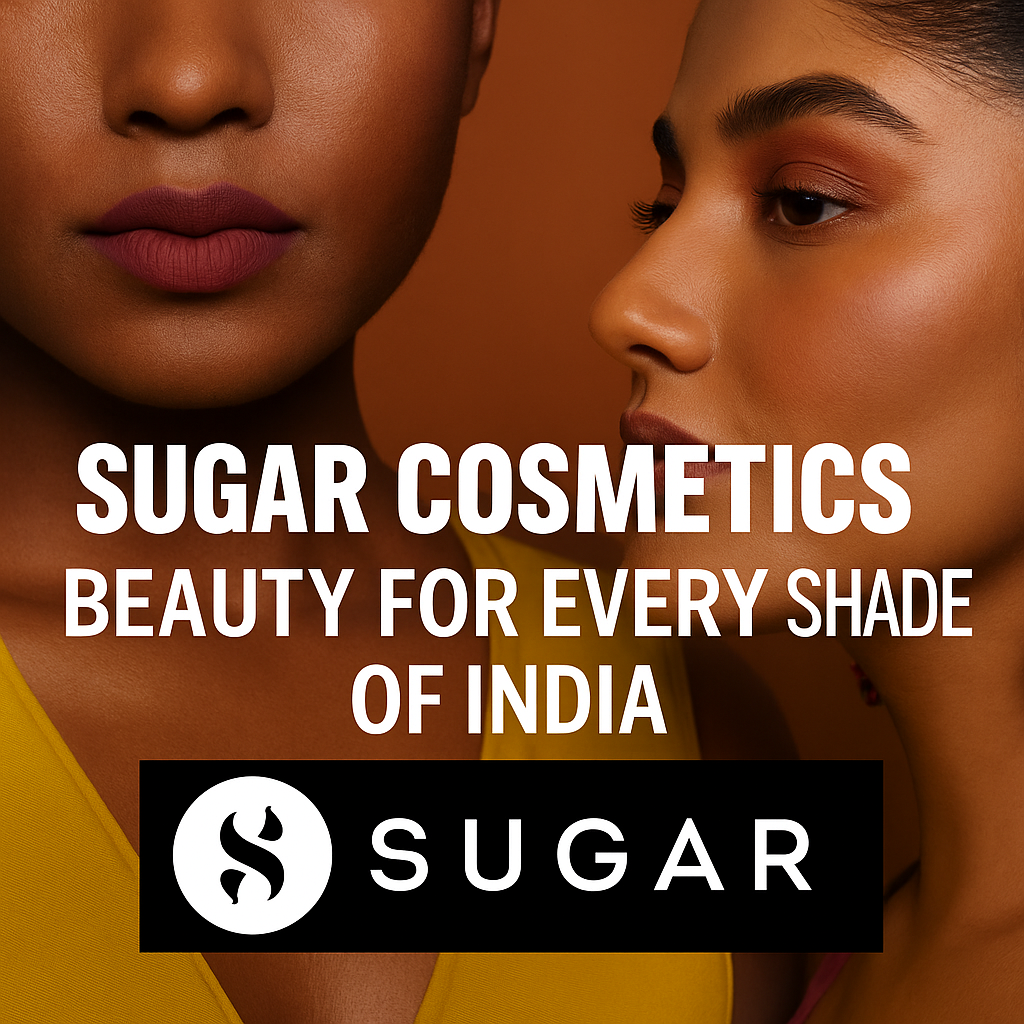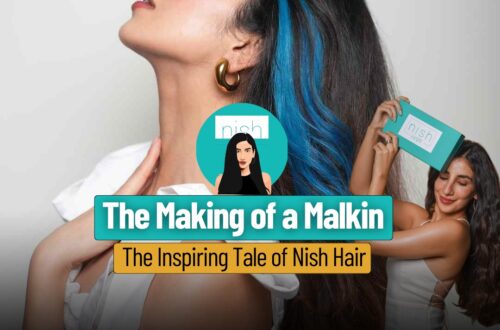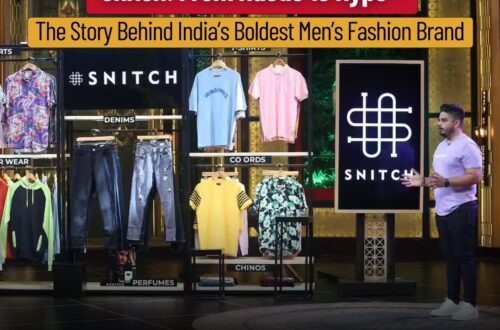I
The rise of eCommerce brought a significant shift in how businesses operated, introducing the concept of Direct-to-Consumer (D2C) sales. This model allowed companies to bypass traditional distribution channels and interact directly with their customers, eliminating the need for intermediaries. In India, the beauty industry had long been dominated by international brands that primarily catered to a narrow demographic, often focusing on a limited spectrum of skin tones and overlooking the diversity of the Indian population.
THE BRAND AND ITS STORY
In 2012, entrepreneurs Kaushik Mukherjee and Vineeta Singh identified a gap in this saturated market. They saw an untapped opportunity to create a brand that truly addressed the unique needs of Indian consumers. With this vision, they founded Velvette Lifestyle Private Limited, which officially launched its beauty and cosmetic products under the brand name Sugar Cosmetics in 2015. The founders aimed to meet the demands of the modern Indian woman by offering makeup that was not only of high quality and long-lasting but also suitable for the country’s varied climatic conditions. Their product line was designed to be inclusive, featuring a wide range of shades that complemented the diverse skin tones found across India.
Today, Sugar Cosmetics has carved a niche for itself as a brand known for its cruelty-free and vegan makeup products. It represents a perfect balance of style, quality, and self-assurance. The brand places a strong emphasis on themes of women empowerment and resonates deeply with young, independent women. It appeals strongly to both Gen Z and millennial audiences, largely due to its relatable branding and effective digital engagement.
Sugar Cosmetics has established a significant presence on social media platforms and is recognized for its inclusive marketing campaigns that celebrate diversity. The company’s extensive product range, which includes offerings for lips, eyes, face, and nails, is widely distributed not only across India but also internationally.
GROWTH OF SUGAR
Sugar Cosmetics began its journey in 2015 after securing its first round of funding. The brand made its debut in the beauty market with just two essential products — a dark matte eyeliner and a rich kohl pencil. In the early years, the company concentrated primarily on building its presence through aggressive marketing strategies and expanding its product range.
By 2019, Sugar Cosmetics ventured into the offline retail segment. This included the launch of exclusive brand outlets (EBOs), strategic partnerships with leading retail chains, and the setup of branded kiosks to enhance visibility and accessibility. These efforts significantly boosted the brand’s physical footprint across the country.
Today, Sugar Cosmetics stands as one of the most widely recognized and accessible makeup brands in India. It has established a presence in over 550 cities and is available at more than 45,000 retail outlets nationwide. Of these, 200 are exclusive brand-owned stores, with approximately 60% located in Tier 2 and Tier 3 cities, reflecting the brand’s strong focus on catering to emerging markets.
In terms of revenue distribution, 45% of the brand’s income comes from its offline retail network, while another 45% is generated through various online sales channels. The remaining 10% of its earnings are attributed to international exports, showcasing the brand’s growing global appeal.
REASONS FOR THE SUCCESS OF SUGAR
The primary factor behind the success of Sugar Cosmetics lies in its commitment to delivering quality products that appeal to a broad consumer base across multiple platforms. Its innovative and inclusive marketing strategies have helped position Sugar as one of the top brands in the beauty and cosmetics industry. The With a diverse product portfolio, the company focuses heavily on product performance and integrity, offering high-performing, cruelty-free, and vegan cosmetics.
Founders Vineeta Singh and Kaushik Mukherjee recognized a significant gap in the Indian beauty market. At the time, very few brands were offering products that truly matched the varied skin tones and complexions of Indian consumers. They aimed to fill this void by developing makeup that not only performed well in Indian climates but also suited the country’s diverse population.
Sugar’s pricing strategy is guided by the idea of making premium-quality cosmetics accessible to consumers who may not have the budget for luxury brands. The brand ensures that its offerings provide value for money, delivering high quality without the hefty pricing. To further support this affordability, Sugar introduced trial-sized and mini versions of several products, catering to budget-conscious customers. This combination of affordability and quality plays a key role in building strong recall value, encouraging repeat purchases and customer loyalty.
In terms of distribution, Sugar Cosmetics operates on an omnichannel model. It has a strong presence across major eCommerce platforms such as Amazon and Nykaa, in addition to its own mobile app and official website. Although primarily based on a Direct-to-Consumer (D2C) model, the brand has expanded its reach by partnering with retail outlets. It has also established a physical presence through its own stores and kiosks located across various cities in India.
Sugar’s promotional strategies stand out for their creativity and inclusiveness. The brand’s campaigns are designed to resonate with a wide range of consumers, ensuring that its messaging speaks to different segments of the market. The brand, with its strong foothold on social media platforms, has effectively utilized influencer marketing to boost its brand visibility. The company actively connects with its audience by regularly sharing makeup tutorials, beauty tips, and updates on new product launches. Through these consistent and engaging efforts, Sugar has successfully cultivated a loyal and growing customer community that resonates with its brand values and offerings.
CHALLENGES FACED BY SUGAR COSMETICS
Sugar Cosmetics, founded by Vineeta Singh and Kaushik Mukherjee, began its journey as a bootstrapped venture in one of the most competitive segments — the beauty and cosmetics industry. Entering a saturated market heavily dominated by well-established international brands posed a significant challenge. These global players had strong brand recognition, deep pockets for advertising, and widespread consumer trust. In such a landscape, it was a daunting task for a new Indian brand to make a mark and establish credibility.
One of the initial struggles was standing out in the overcrowded beauty space. With so many similar offerings already available, Sugar had to define a clear and strong unique selling proposition (USP) to differentiate itself. Identifying and meeting the specific needs of Indian consumers, especially in terms of skin tones, climate suitability, and performance, became central to this strategy.
Just as the brand had begun to stabilize its operations and streamline its offline supply chain processes, the COVID-19 pandemic struck. The sudden disruption caused by nationwide lockdowns brought production, distribution, and retail activities to a near halt. Physical stores were shut, and consumer behaviour shifted dramatically. In response, Sugar swiftly adapted by accelerating its digital transformation. The brand leaned heavily into its online channels and strengthened its social media presence, using digital marketing as a core strategy to stay connected with its audience. However, the brand did not give up and restrict itself to its digital presence, in 2020 it kept pushing its products in physical retail stores as well.
The beauty industry is known for its intense competition, with countless new and existing players vying for consumer attention. Competing with both Indian and international brands required Sugar to be continuously responsive to market trends, pricing strategies, and evolving consumer preferences. The brand had to not only compete on quality and pricing but also stay culturally relevant and trend-aware.
In such a fast-paced and trend-driven sector, innovation and differentiation are crucial. Sugar had to constantly develop new products, refine existing ones, and ensure its offerings stayed aligned with consumer expectations. From formulation to packaging, every aspect needed to reflect the brand’s distinct identity. Staying ahead in terms of design, inclusivity, and product performance was key to keeping the brand fresh and desirable. Sugar is one of the very few brand that constitutes women empowerment as a culture in their working environment having 75% of its workforce being women.
CONCLUSION
Sugar Cosmetics has successfully emerged as a leading player in India’s competitive beauty and cosmetics industry and has been able to break through a highly saturated and competitive industry by staying authentic, inclusive, and consumer-centric. Founders Vineeta Singh and Kaushik Mukherjee used these insights to build a brand that was not only relevant but also deeply resonant with the modern Indian woman. Early adoption of social media marketing and influencer collaborations helped the brand gain visibility and build strong connections with Gen Z and millennial consumers. The brand’s content is relatable, empowering, and inclusive, reflecting real people and celebrating diversity and it was seen as a refreshing shift from conventional beauty norms. Additionally, Sugar’s internal culture reflects the same values it promotes externally. With 75% of its workforce comprising women, the brand champions gender equality and empowerment not just in marketing, but within its own organizational framework. This commitment adds another layer of authenticity to its brand narrative, reinforcing trust and emotional connection with its consumers.
By- Smriti Rai






